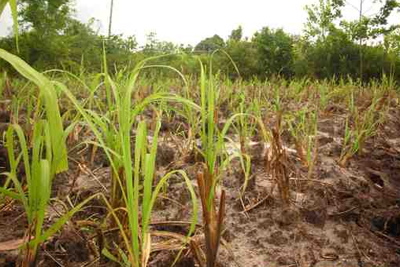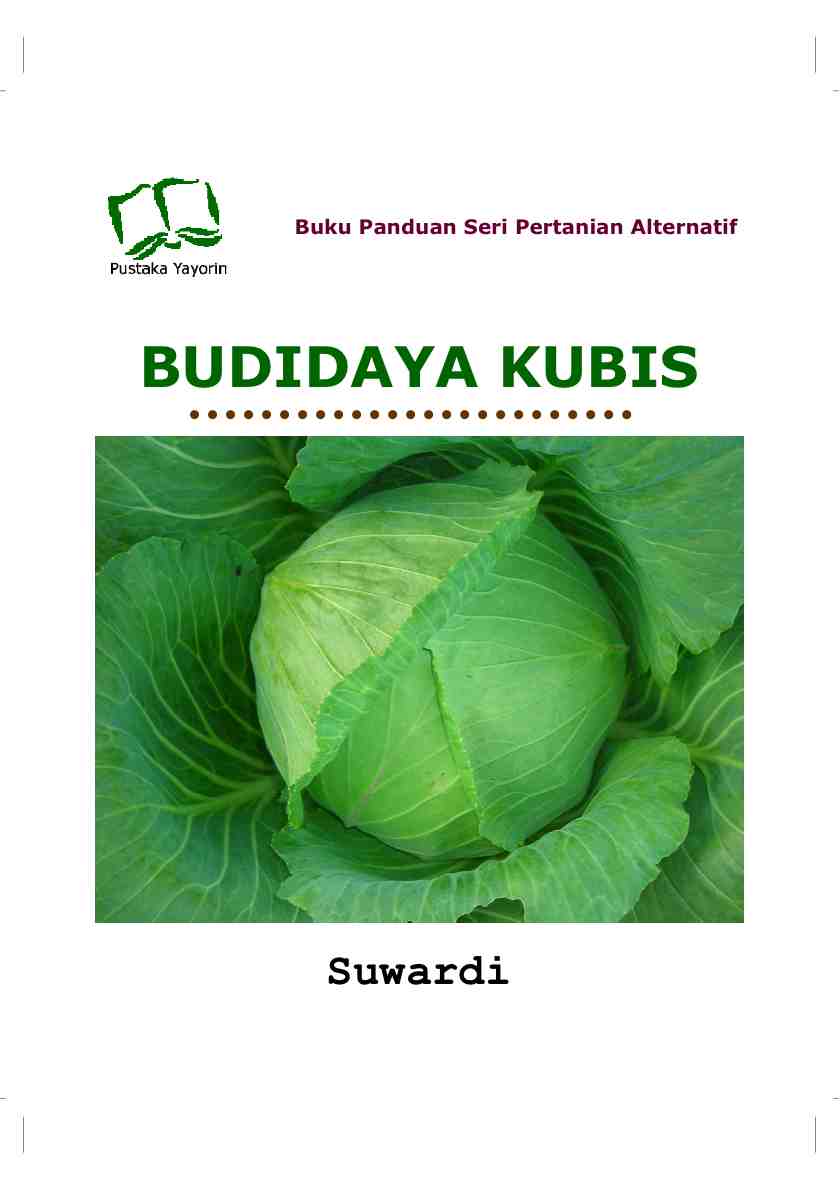An exciting development just happened at Kampung Konservasi this week that we would like to share. We finally published the first book on cabbage cultivation using the alternative agriculture method that we develop at Kampung Konservasi. Why is this exciting? The book is the result of long, hard work of our agriculture facilitator, Mr. Suwardi, who is now famous as “the cabbage man”.

Pak Suwardi - photo by Yayorin
I remember the first time Pak Suwardi joined the Kampung Konservasi team. He came all the way from Magelang, Central Java, where he was a successful farmer and an experienced community facilitator. He seemed to me as a “typical” Javanese farmer: calm, quiet, simple and hardworking. Kampung Konservasi was nothing like it is now. The area was practically empty, just high grass and a few young trees. The first thing Pak Suwardi noticed was, of course, the sandy soil. He told me that he had no idea what to do with it because he had never seen anything like it before. We then agreed that the only thing that he could do was to do as many trials as possible and learn from them.
Barren/sandy soil - photo by Yayorin
Cabbage Demonstration Plot - photo by Yayorin
Pak Suwardi has been working so hard since day one. He wakes us as early as five o’clock in the morning and works on the demonstration plots right away before the sun gets too hot. He has tried so many different things, planted so many seedlings, spoke with so many people and made many “mistakes”. The amount of physical work that this man can do is incredible! He has changed the face of Kampung Konservasi, almost all by himself. Before we knew it, we had wonderful harvests of tomatoes, chilies, string beans and cabbage! The cabbage was a major thing because nobody has ever grown cabbage in Borneo before. Just like most vegetables available in this area, cabbages come from Java, shipped across the sea.
The book to be distributed to local farmers.
Now, all of his experiences and findings, especially on cabbage cultivation, are written in a simple book that will be distributed to the local farmers. This book will be the first of many. Yayorin plans to publish a series of books on alternative agriculture, based on real experiences and field trials. These books are powerful tools that we can use to further our education efforts.
Terima kasih,
Sally (Yayorin)





